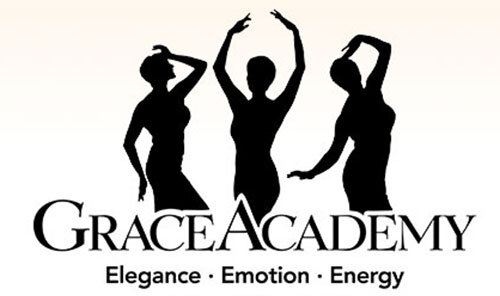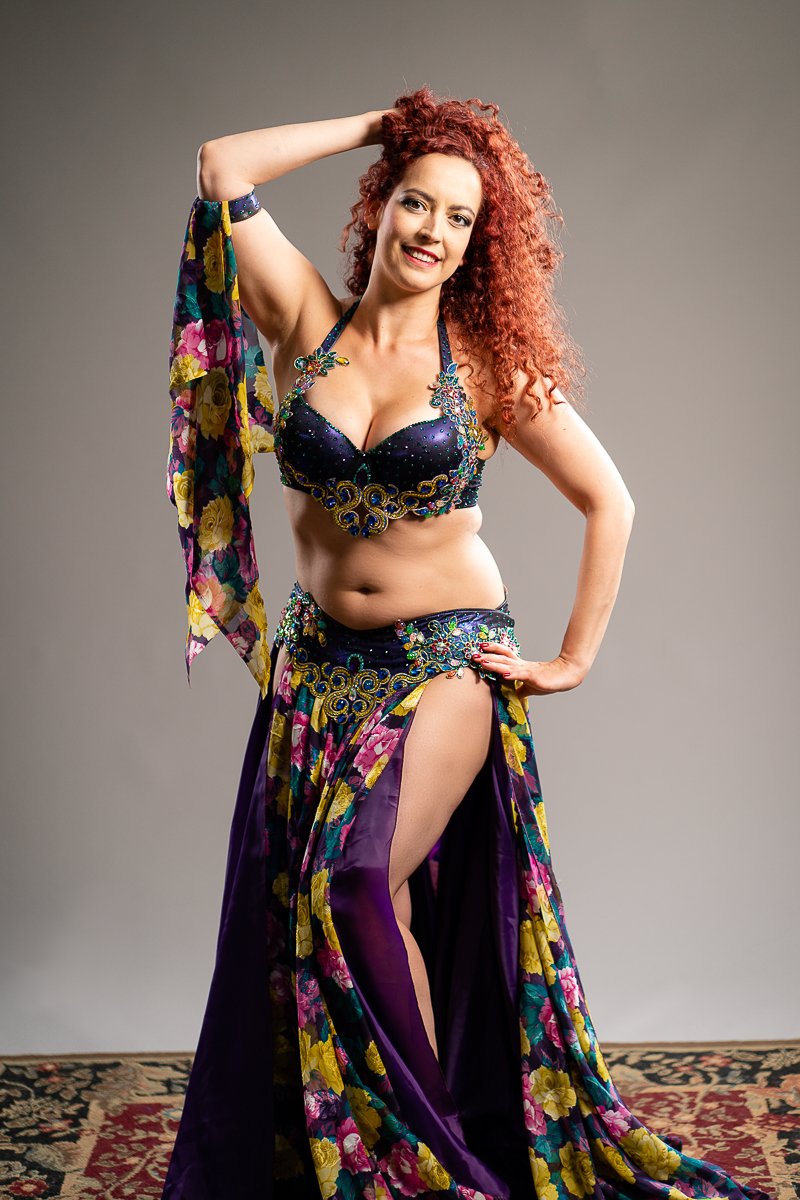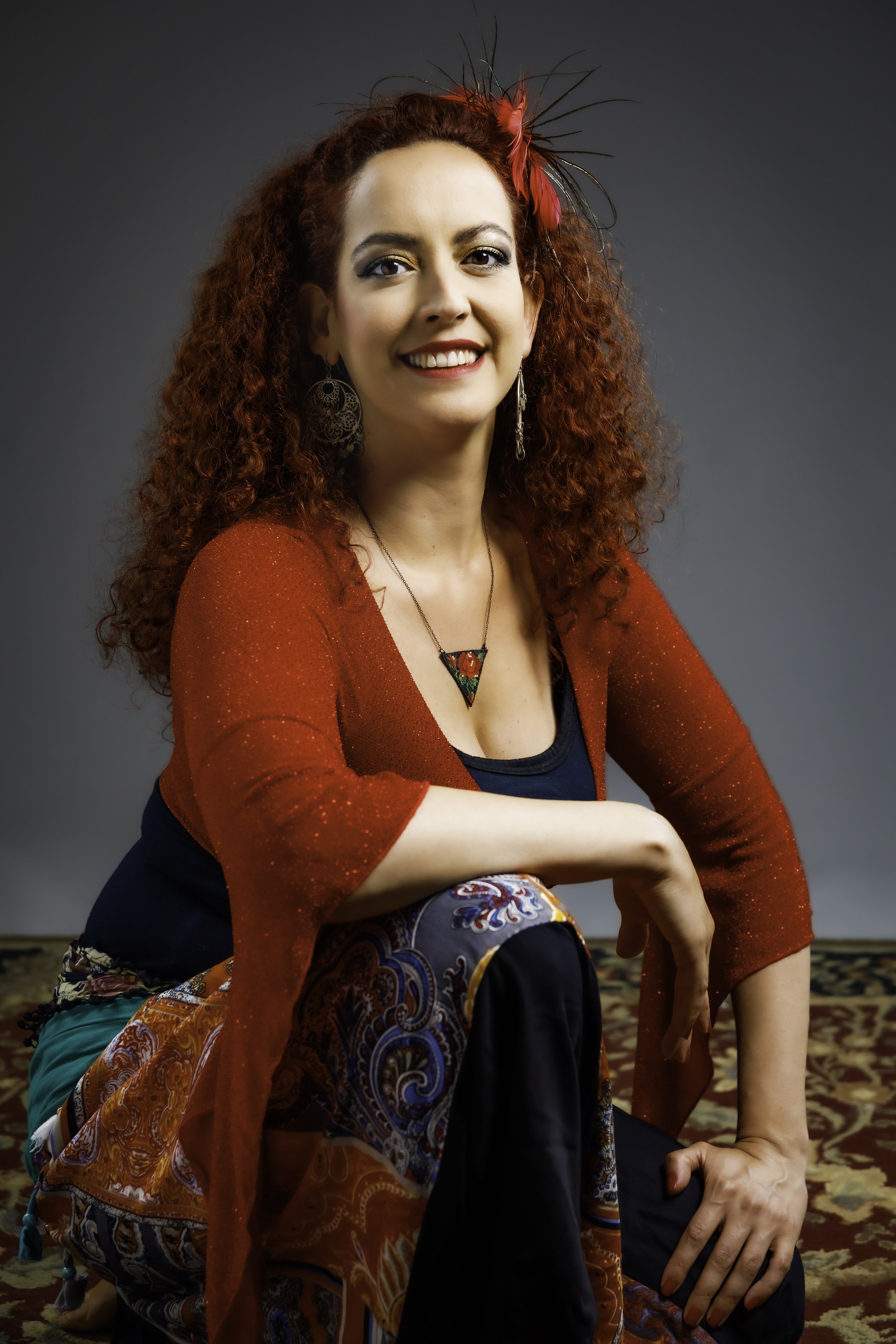Dancer Origin Stories – Asli
This installment of Dancer Origin Stories features Asli, a down-to-earth dancer from Turkey, currently residing in Toronto, CA.
Asli has always been impressed with belly dancing and admired it in her home country, Turkey. In 2010, she started learning under the instruction of Joanne Camilleri at University of Toronto. These classes enhanced her passion for this art form. From 2010 to 2018, she was part of Dragonfly Belly Dance Studio, and she improved her dance skills under the tutelage of Zahira and Anuka.
During this time, she was also part of the Dragonfly Student Troupe (2013-2016), performing in Luminescence (2015) and Alchemy (2017). As of 2019, she is a new member of Yasmina Ramzy Arts/Arabesque Dance Company, under the mentorship of Yasmina Ramzy.
She has performed in many festivals including Dance Ontario Dance Weekend (2019), Habari Africa Festival (2019) and Canadian Arab Orchestra Multicultural Festival (2019). Alongside belly dance, she also performs Turkish Rom and she is an ardent student of Egyptian Folklore styles. In 2016, she won an award for her Turkish Rom style performance at Star Belly Dance Canada.
Let’s learn about Asli’s origin story!
Q. What is your first memory of dance?
I think one of my earliest memories is in my aunt's house for my cousin's birthday, and I was dancing in the middle of the room while people were having their tea and their cake.
I also did Azerbaijani folk dance when I was in primary school. We were actually doing competitions for a couple of years. I have been wanting to return to this style because it's been a while and it’s such a beautiful dance. The music is contagious as well!
As for Romani, my memories are again from my childhood because my aunt's cottage was in Sarkoy, which is the Northwestern part of Turkey, the European side. There's quite a large Roman population there. I was always observing how they danced and trying to mimic it as a child. I grew up with that music, with that dance around me.
Q. What phase of life were you in when you took your first dance class?
As I mentioned, the Azerbaijani classes were an extracurricular activity at my primary school. They invited a teacher to give us a class. So, those were my first official dance classes.
Funny enough, I didn't take any oriental or belly dance classes when I was in Turkey, and I don't think that wasn't even a thing in Turkey when I was a kid. It was something that people just expected you to know. It wasn't something you will go out to learn because you just know how to dance. But, I think it's changing now.
When I came to Canada, where I was starting my master's degree, I became friends with a Ukrainian woman and found out that there were belly dance classes at the University of Toronto.
We took the class, which was one or two sessions. My friend stopped, but I continued to go. My Turkish friends, when I told them about the classes, were like, “You are taking belly dance classes? You're Turkish!”
Q. What led to you becoming serious about your study of dance?
It kind of happened organically. When I took my first class, I didn’t think that I was planning to be a professional dancer and perform at weddings and things like that. It just happened.
But I think when I started dancing, I really enjoyed the interaction that I had with the audience. My happiness kind of translated through dance. And I can see that on the face of the audience. That really makes me happy.
Monetary gain is like a cherry on top, but at the end of the day, I do it because I really enjoy dancing. I love the music. I love everything that is related to it.
Q. How did your family react to you becoming a professional dancer?
It was a challenge. It was okay when I was just taking classes. But when I started being more of a professional dancer, it became more of an issue. Like, good girls don't become professional dancers.
My mom said, “nobody will marry you. You are posting all these things on Facebook.” She also asked me to stop dancing a couple of times. She really didn't want me to dance because you know what other people will think. I think some people in her community made fun of her.
People would say, “You sent her to school for a Ph.D. and she became a dancer instead.” But, this is my life and they are a continent away from me. They can think whatever they want. I say, if anybody doesn't want to see my videos, they can unfollow me on Facebook. One of the things I think is if they don't like my dancing, then I don't want to be with them. That means that they don't love me as a whole.
And, in fact, I did find someone who wanted to marry me. My husband, who's Canadian, doesn't have a problem with my dancing. He actually drives me to all my gigs. And even though he doesn't like to do it, he tapes all my gigs. That killed my mom's argument.
Q. What have you learned from dance that contributes to your non-dance life, and vice versa?
Dancing in a troupe–since you are with a group of people from a variety of different backgrounds and you are working on creating something together in a harmony. You might not like everybody in your group, but you learn how to make it work and create something beautiful together. I think it is a really good skill that you can transfer to your everyday life.
On another note, being a professional dancer has a lot to do with customer service. You learn what the students or clients want and deliver that, within your boundaries.
Q. We have mentioned Romani, Roman Havasi, and Oriental dance. Can you talk more about these terms?
They are both social dances. Roman Havasi is mainly the dance style performed by Romani people in Turkey. It's very specific. I have Romani friends and each has a different style of dancing. I see Roman Havasi as a folkloric dance.
“Oryental” Dance is pretty much the Turkish form of the raqs sharqi, aka belly dance in western parlance. In Turkey, we call it “Oryental”. I know that some people have a problem with the word “Oryental” because of the concept of Orientalism. But Oriental translates into English as “of the East.” So that's why we use it.
As for the term raqs sharqi, I understand why people want to use this instead of belly dance. I totally agree with the reasoning, but I feel like when you say raqs sharqi, you kind of eliminate the Turkish style altogether because it's an Arabic name. That's why I lean towards using the term Oryental Dance instead of raks sharki.
Q. What is a movement or an aspect of the dance that came easily to you?
Stage presence came very naturally to me. When I was a beginner dancer, people noticed that I was very relaxed on stage. I think interacting with the audience came easier to me than for some other dancers. You give your energy to the audience or you take it and give it back and it's going to be this amazing flow.
Q. Share the memory of learning a movement that came easily to you…
Most hip movements were fairly easy for me to pick up when I started dancing. I was really flexible, especially in my hips and back, so I think that helped a lot. I started dance at a time in my life when I was very shy and had low self confidence. I just remember feeling so great coming out of class every week feeling like I was actually good at something.
Q. What was something that was more challenging for you?
For me, when I first started studying, I was learning American Cabaret style, which was more focused on isolations and layers, so that was challenging. When it’s social dance, you just dance. You don't necessarily think about it or count the music. You just feel the music and you do what music tells you to do or however you feel like doing it. So it was very challenging to count and do these crazy layers and isolations.
I was born with hip dysplasia. My legs were not connected to my hips. I had to have surgery, which led to a leg length discrepancy. So my left leg is actually 2.5 centimeters shorter than the other one. If I do very repetitive moves or shimmy for too long, that can be very uncomfortable for my hip.
Everybody has a different body. Everything will look different and may come easier or more difficult because of the way that your body is structured. I want my students to be comfortable with their bodies when they're learning. I also remind them that dance should not hurt you. If you are doing something because I told you to do it this way and it's hurting you, that's not the correct way for your body. So we have to find another way for you to get to that movement.
Q. Why is studying folkloric dance so important?
I emphasize that everybody should study folklore. Every folkloric dance has its own feeling and its own history. By doing all types of folklore, you will expand your expression. It can also help you better understand Oryental dance and why we are doing things that we are doing, and it'll literally add to your dance vocabulary.
When you study many styles, you can see the difference between them, and you have a better understanding of why people dance the way that they do. This is extremely important to learn. You don’t need to be an expert in everything but you should do it for your own education as a dancer.
Q. Is there anything you would like to add?
We talk about all these discussions about diversity and inclusivity and supporting the dancers of origin. Ariyana and I do an interview series called My Light Shines. We interview dancers from the cultures of origin, BIPOC dancers, and many more.
The main thing that we get from them is that they don't feel included in the community. We don't necessarily feel accepted or included. And it's frustrating, especially after having all these conversations during the pandemic. So I hope that we can actually do more work on that.
I'm now being invited to teach workshops. So it doesn't take that long to help out or reach out to dancers of origin.
I will also suggest following Zara from Egypt. She's an amazing dancer. She is currently performing in Egypt and she did amazing things during the pandemic. She created the Online Zoom Hafla. She featured all different dancers from Egypt to make sure that they had an income during the pandemic when everything was shut down, via the ticket money from the hafla. The Online Zoom haflas by Zara are starting again, so get your tickets for that!
Q. What do you have coming up?
I'm currently teaching at Yasmina Ramzy’s Academy in Toronto, ON here in Canada. She's my dance director. We are rotating between two other teachers. I love sharing that experience with the other two teachers because I have always been a believer in learning from different teachers. Nobody should be just like one teacher for the rest of their lives because every teacher does things differently because everybody studies differently.
I will be bringing Zara to Toronto in September 2023. She's an amazing teacher and she has the biggest heart. I'm really excited for this. She will teach workshops and also share a lecture. I think it's important to learn from the conversations we will have. Zara has danced professionally in the UK for many years and now she is full time in Egypt. One of her parents is from the UK and the other is from Egypt. So, she has two lived experiences, and I think she's a very important source.
Watch or listen to our full interview!
About Asli
Asli improved her dance skills by taking classes from internationally famous teachers like Yasmina Ramzy, Randa Kemal, Aziza of Montreal, Tito, Sahar Samara, and Mohamed Salah.
Asli is known for her expressive, joyful and engaging performances. One of Asli’s specialties is Roman Havasi (Turkish Romani Dance), which she learned in her home country as well as from international teachers like Serkan Tutor and Iana Komarnytska.
Asli is also a talented Tanoura Sufi dancer who performs regularly in public and private events under YRA entertainment agency. Asli’s mission is to share her love of dance via teaching and making your special event a day to remember.
Check out her website for online classes and courses, music, and information on Back to Cairo with Zara happening September 22 - 24, 2023 in Toronto, Canada!











